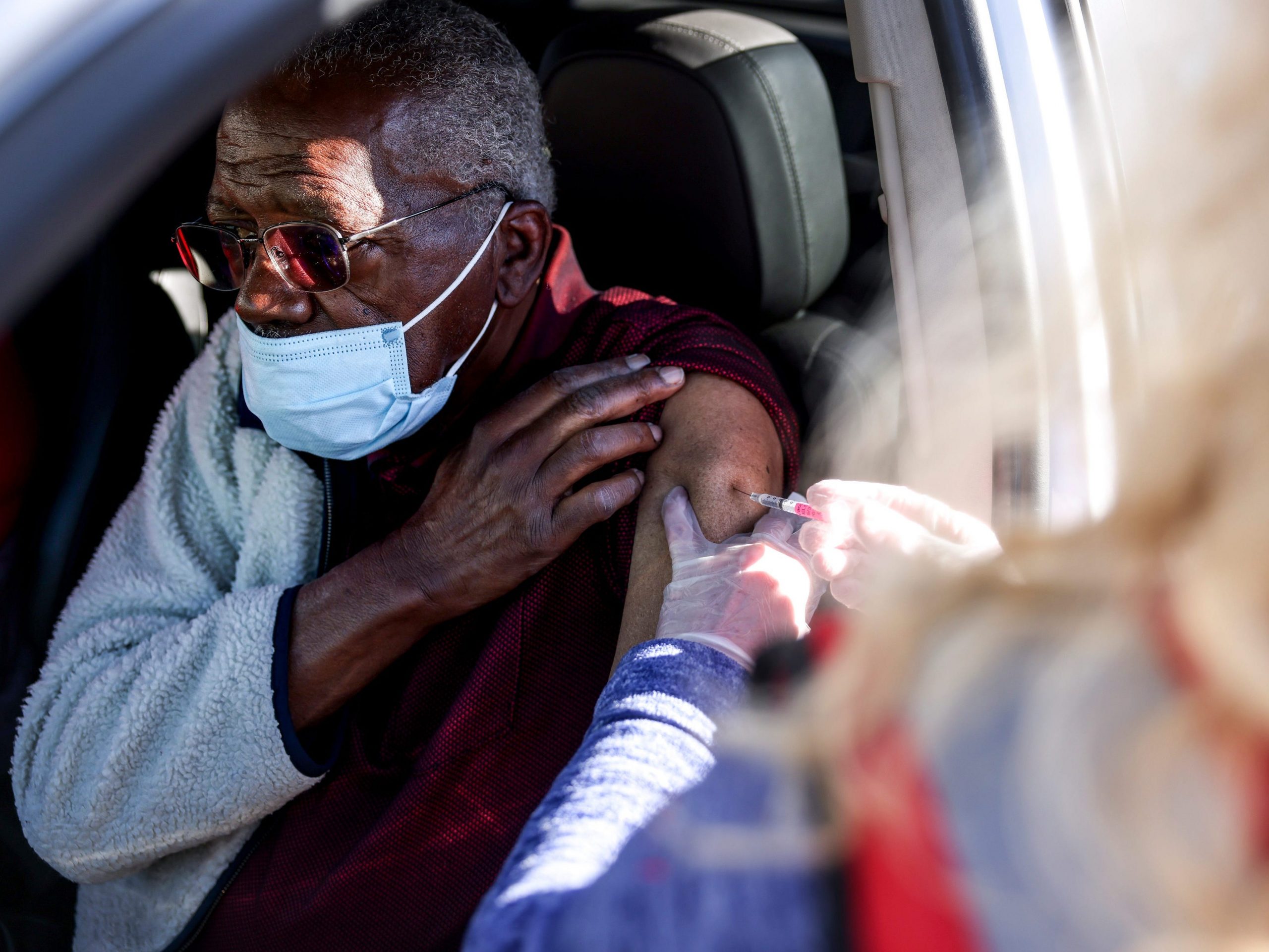
Michael Ciaglo/Getty Images
- A key mutation found in the coronavirus variants in South Africa and Brazil has now been detected in the variant found in the UK.
- Scientists believe the E488K mutation could help the coronavirus evade antibodies.
- They fear it could mean that vaccines work less well, or that people get re-infected.
- Visit Business Insider’s homepage for more stories.
The coronavirus variant first found in the UK and spreading around the world appears to be evolving a further mutation that scientists fear could help viruses evade vaccines.
The mutation is also found in the variants found in South Africa and Brazil. Scientists believe it enables the virus to escape antibodies produced by the body, after either immunization or a previous coronavirus infection. Vaccines and certain antibody drugs may therefore not work so well.
Eleven cases of the variant, called B.1.1.7, had the E484K mutation in a data set of more than 200,000 in the UK, Public Health England said January 26.
Professor Lawrence Young, virologist at University of Warwick, said the mutation was a “concern.”
The fact the variant from the UK appears to be acquiring this mutation “shows that the virus is very likely to be adapting to our immune response,” he said.
"The South African variant might be able to more efficiently re-infect individuals who have previously been infected with the original form of the virus," he said in a statement. "This is likely to be due, in part, to the E484K mutation which may weaken the immune response."
He said the mutation could also impact how long the antibody response lasts for.
The variant detected in the UK has been sequenced in 55 different countries, including the US. There are 342 cases in the US, according to reports based on GISAID data.
Vaccine maker Novavax said Thursday that its COVID-19 vaccine worked less well for the variant found in South Africa. Johnson & Johnson said Friday its COVID-19 shot was less effective in South Africa - scientists have suggested that this was due to the E484K mutation.
Pfizer and Moderna have both said that their COVID-19 vaccines work, albeit slightly less well, against man-made lab variants that contain the mutation. Neither company has tested against real-world coronavirus variants.
"Worrying development"
"If this E484K mutation is acquired by most of the UK B.1.1.7 variants, the recent reassurances from recent studies showing that the mRNA vaccines [like Moderna and Pfizers] will still offer optimum protection against the original UK variant may no longer apply," Dr. Julian Tang, clinical virologist at the University of Leicester, said in a statement.
"It is worrying development, though not entirely unexpected," Tang said.
Simon Clarke, associate professor in cellular microbiology at the University of Reading, said in a statement that while no assessments have yet been made on the effectiveness of the vaccines currently in use in the UK - from drugmakers Pfizer and AstraZeneca - it was possible they may work less well against B.1.1.7 variants with this mutation.
Virus mutations happen when a virus replicates, and makes errors. This is a normal process, but mutations become worrying when they start to affect the virus' behavior.
Public Health England reported that preliminary information suggests more than one "acquisition event" had caused the E484K mutation.
It could also have come about because someone was infected with both the variant from South Africa or Brazil, as well as the variant found in the UK, Tang said. Tang added that this is seen with flu viruses, but is rarer with coronaviruses.
Young said that whatever changes have occurred in the B.1.1.7 or any other virus variants, standard measures to restrict transmission - hand washing and social distancing, for example - will prevent infection.
Dit artikel is oorspronkelijk verschenen op z24.nl
